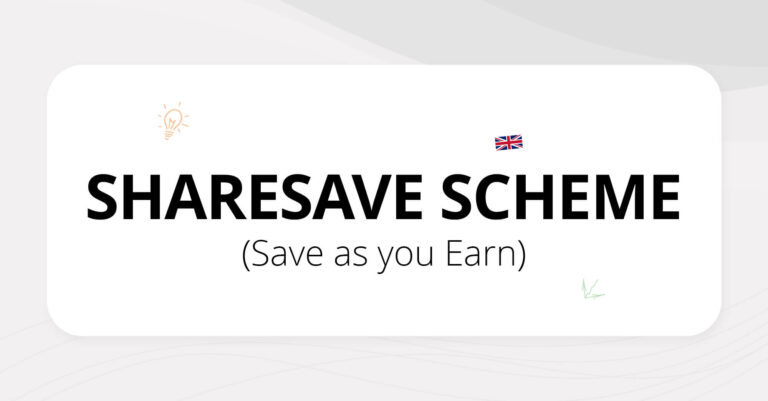Enterprise Management Incentive (EMI) plans have become increasingly popular in the UK in recent years, with more and more companies choosing to make this kind of employee incentive plan a key pillar of their overall compensation strategy not only to attract and retain key employees but also to take full benefit of the tax-advantages.
If your company has passed the qualifying conditions and your plan is up and running, you can start to enjoy the many benefits of an EMI scheme. However, now is not the time to completely sit back and relax. The EMI scheme has strict compliance rules every company must continue to follow to avoid a disqualifying event.
If you’re completely new to EMI schemes and want to find out more, read our EMI Scheme Complete Guide.
So, what are the EMI disqualifying events ?
The EMI disqualifying events can be triggered either by the company’s activities or those of individual option holders.
Disqualifying events for employees
At the individual level, most disqualifying events will tend to revolve around the working time requirements and whether an individual leaves the company during the life of the EMI.
If an employee who previously worked 25 hours per week for the company saw those hours reduced as an average during a given tax year, then that will have implications for the status of their EMI options. The same may apply to special leave, such as taking a sabbatical or extended unpaid sick leave.
Issues will also arise in the event of individuals who hold EMI options leaving the company that awarded them those options. With some employee share schemes, we speak in terms of “good leavers” and “bad leavers” and highlight how individuals may be treated differently depending upon which category they fall into. This tends not to apply with EMI disqualifying events. Generally, it doesn’t matter whether someone leaves a company on good terms or bad terms, through retirement or redundancy, or due to illness; under the rules associated with EMIs, they will be treated the same. Death can be a partial exception to this rule. It is still treated as a disqualifying event, but it is handled differently in terms of the tax consequences.
What happens if an employee has a disqualifying event?
If an employee has a disqualifying event, they have 90 days from the time of the event to exercise their EMI options. After the 90 days, they can no longer take part in the scheme.

Disqualifying events for companies
At the company level, the rules around trading activities can sometimes lead to a disqualifying event but depending upon the circumstances there may be leeway.
While a clear disqualifying event will have occurred if a company moves into one of the excluded sectors after receiving approval for the scheme, there are some more trading activities-related scenarios that may be viewed in a more nuanced way by HMRC.
For example, a company may qualify for the scheme if they plan to meet the scheme’s requirements within two years of the first grants being issued. If they don’t carry out their plans to meet the qualifying conditions within that time frame, they will be disqualified.
As a qualifying condition, an eligible company must be an independent operation, retaining at least 50% of its own ordinary share capital. So, if that company is subsequently taken over or becomes a subsidiary of another company, this will be deemed to be a disqualifying event.
However, here too, there can be an exception. If the existing options are exchanged for replacement options in the new parent company, then the change of control will not be judged to have constituted a disqualifying event. In that scenario, the established tax and valuation treatment of the options granted initially will effectively be rolled into the new options.
Granting options under a Company Share Option Plan (CSOP) to individuals already in receipt of options under an EMI scheme can also create complications. The £250,000 individual limit mentioned earlier applies to both CSOPs and EMIs. So, if an employee has been awarded EMI options to the value of £200,000, they will be able to receive options valued at £50,000 under a CSOP, but any award above that value will see that individual exceed the limit, and any subsequent award made for the next three years – having reached the limit – will not be eligible for tax treatment as an EMI or CSOP.
What happens if a company has a disqualifying event?
Usually, when a disqualifying event is deemed to have occurred, participants’ options can be exercised within 90 days and still be treated as EMI options. Once exercised within this time window, all favourable tax treatment is retained – 10% CGT Entrepreneurs’ Relief. If for whatever reason, the options are not exercised within that time period, beyond that point they will be treated as unapproved options from the taxation perspective, and that reduced CGT rate will no longer be available. Check out an example here>>.
How to avoid a disqualifying event?
It goes without saying that disqualifying events are best avoided, yet many companies – whether due to oversights or whatever other reasons – will sometimes find themselves in this position. As with so much else in business, experience, expertise, and attention to detail can go a long way towards averting unnecessary headaches, and that rule of thumb very much applies here.
We can help
Global Shares has all the necessary skills and know-how to help you deal with your EMI at every step along the way, from setting it up and then managing the scheme throughout its lifetime, and also, crucially, to assist you in handling potential disqualifying events as and when they emerge.
Contact us today and speak to our dedicated share plan experts.
Want to learn more about EMIs?
Whether you’re completely new to EMI schemes or looking to improve your knowledge, our EMI library can help you learn all about the world of enterprise incentive schemes.











